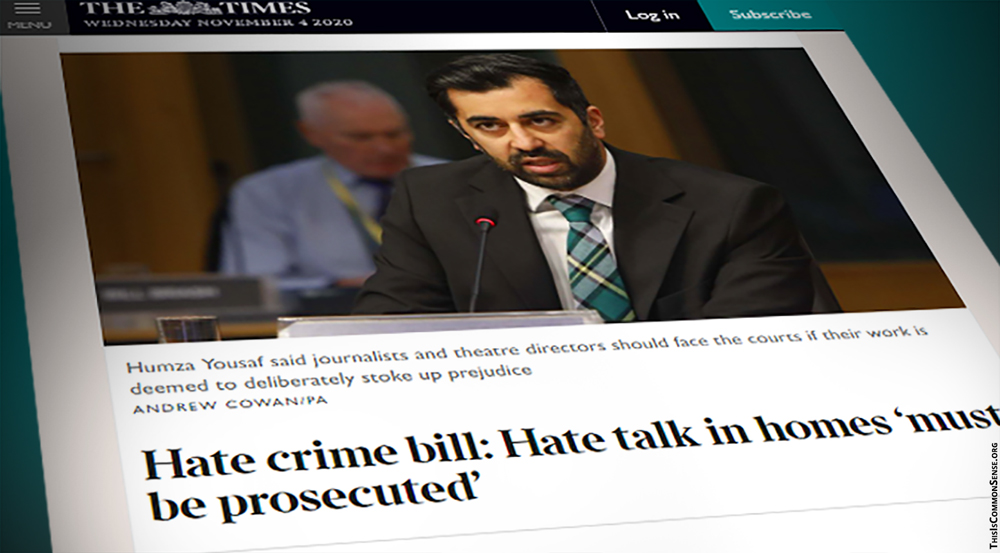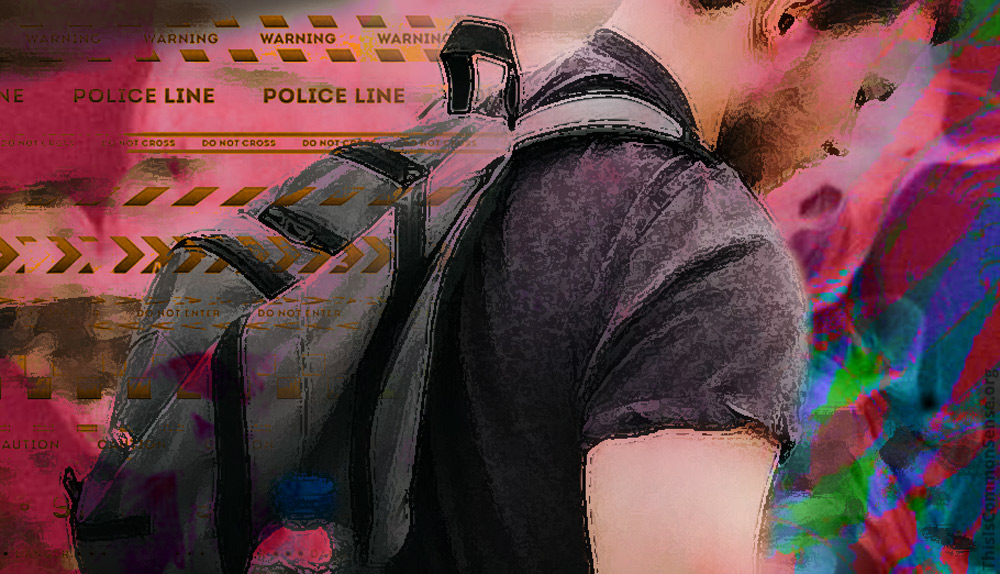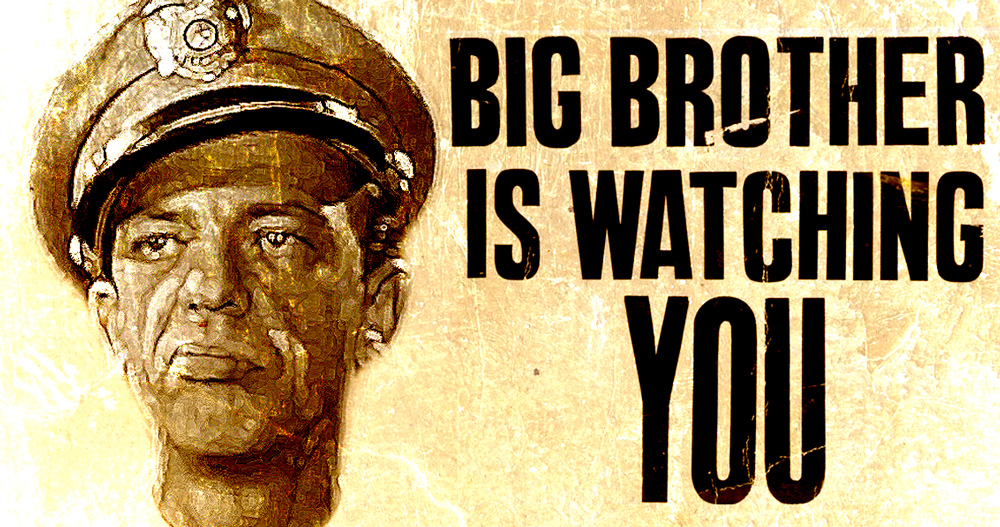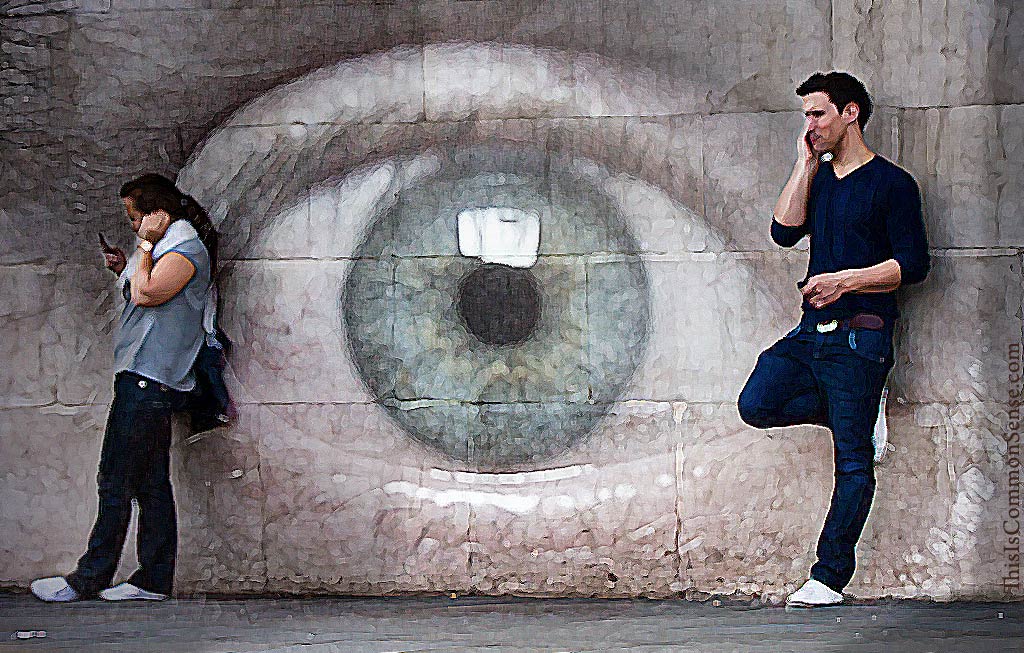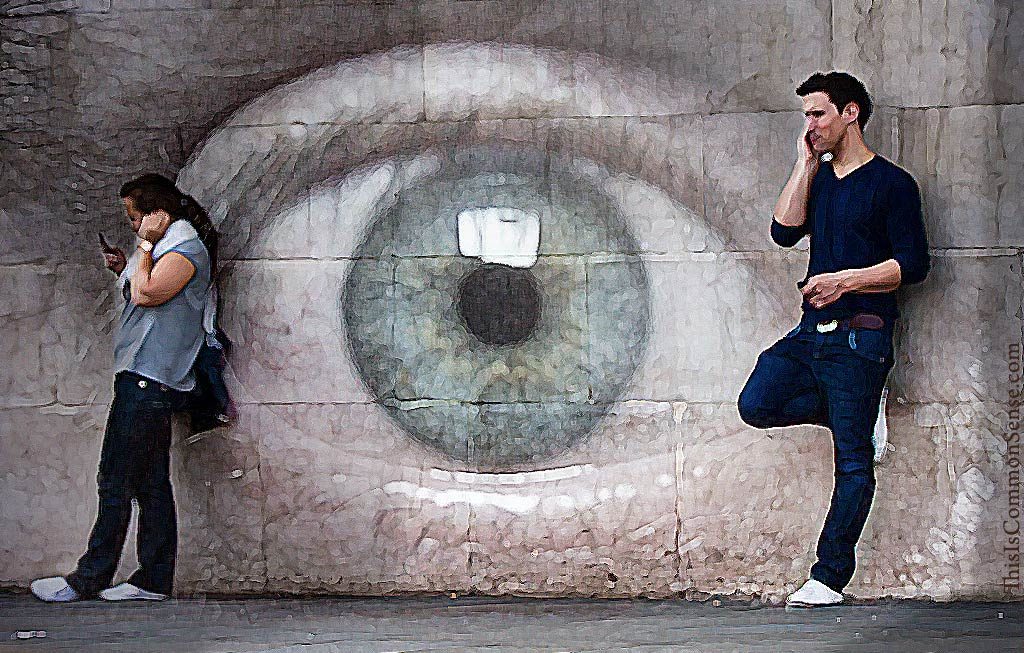Headline: “Hate talk in homes ‘must be prosecuted.’”
“Must”?
The proposed legislation targets speech alleged to promote prejudice. It is backed by Scotland’s secretary for justice, Humza Yousaf.
Might the law be deployed to squelch debate regarding, say, radical Islam?
“Are we comfortable giving a defence to somebody whose behaviour is threatening or abusive, which is intentionally stirring up hatred against, for example, Muslims?” Yousaf asks. “Are we saying that that is justified because that is in the home?”
I suspect that here we have someone who has never attended a sizable family gathering. Many attendees might report “hate talk” but oppose fining or imprisoning the so-called hate-talkers.
Could the law be directed against journalists and others who publicly express loves and hatreds?
“We wouldn’t want to give the likes of Tommy Robinson a defence by saying that he’s ‘a blogger who writes for The Patriot Times,’” says Yousaf.
“Stirring up hatred” is, of course, not identical to threatening or instigating violence. Presumably it is already illegal in Scotland to plan murder and mayhem over the dinner table.
There’s an awful lot of speech out there with which we might vehemently disagree. Plenty of dumb, hateful, prejudice-laden speech that violates the rights of no one does get uttered in homes and Internets. We must preserve the distinction between “things that are wrong to say or do” and “actions that should be illegal.”
Scots should resist these hateful assaults on their right to speak freely.
This is Common Sense. I’m Paul Jacob.
—
See all recent commentary
(simplified and organized)
